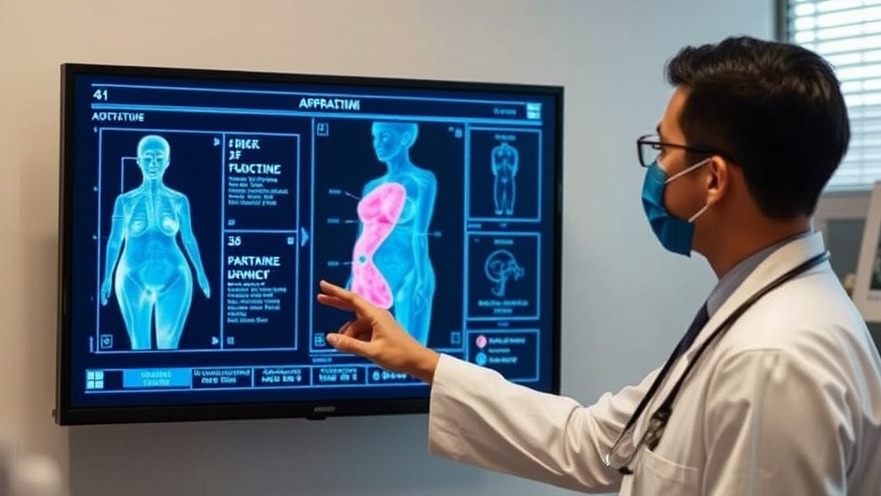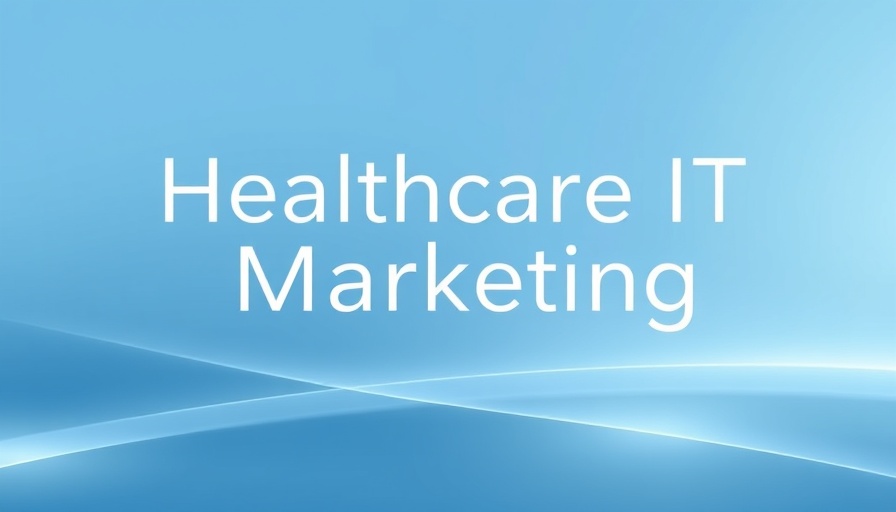
Understanding the Role of the AHA and Epic Collaboration
The partnership between the American Hospital Association (AHA) and Epic is poised to significantly reshape maternal healthcare in America by tackling postpartum hemorrhage (PPH) through innovative technology. As a critical health issue, PPH accounts for a staggering 11% of maternal deaths in the U.S., highlighting the urgent need for effective solutions. This collaboration aims to integrate advanced electronic health record (EHR) tools that enhance clinical workflows, ultimately ensuring safer childbirth experiences for mothers.
Why Postpartum Hemorrhage Matters
Postpartum hemorrhage can occur unexpectedly, affecting even those who appear healthy. With 40% of cases arising in patients without pre-existing risk factors, the unpredictability of PPH raises the stakes for healthcare providers. By embedding tools within EHR systems, clinicians are better equipped to identify and respond to these risks promptly. The partnership emphasizes that every moment counts when it comes to maternal health.
The PPH EHR Toolkit: Features and Benefits
The newly introduced PPH toolkit is now available to users of Epic’s Stork Obstetrics Information System. It includes several vital features designed specifically to address the complexities of childbirth. These are not just mere tools but a comprehensive method of care:
Risk Assessment: Continuous monitoring allows healthcare providers to assess a mother's risk of hemorrhage at multiple intervals throughout the childbirth process.
Clinical Decision Support: The toolkit embeds guides that offer step-by-step support for clinical decisions within defined risk categories, allowing for tailored and informed patient care.
Treatment Facilitation: Tools are integrated into the clinician’s workflow to help manage acute hemorrhaging situations effectively.
Jackie Gerhart, M.D., Chief Medical Officer at Epic, emphasizes that the goal is not only to provide tools but to ensure they are actionable, translating into improved care outcomes in real-time.
Real-World Impacts: Success Stories from Implementation
As part of this collaboration, the AHA and Epic will share success stories from healthcare facilities already benefiting from this EHR toolkit. For instance, Baptist Health in Arkansas has seen marked improvements in managing hemorrhage during childbirth, thanks to the inclusion of the postpartum risk assessment tool and other resources in their EHR system. Similarly, WakeMed has reported consistent decreases in obstetric hemorrhage rates since integrating the AWHONN tools, showcasing the positive outcomes of effective technological adoption.
The Future of Maternal Care with Tech Integration
The ongoing efforts to promote best practices through engaging workshops, programming, and forums for healthcare professionals highlight a proactive approach to integrating technology in maternal care. Concierge health practitioners, especially those navigating the complexities of tech solutions, for example, stand to benefit significantly from these resources. Understanding how to use EHR systems effectively can empower practitioners to provide better care and improve their community standing.
Why Embracing Technology is Crucial for Healthcare Practitioners
In a rapidly evolving healthcare landscape, embracing AI-powered solutions is not just about keeping up; it's essential for enhancing patient outcomes. For health practitioners feeling overwhelmed by technology, it's reassuring to know that this partnership is focused on creating straightforward integration processes. By leveraging available tools, practitioners can ensure they are providing cutting-edge care while also solidifying their roles as leaders in their community.
Final Thoughts: Take Action Today!
Advancements like the AHA and Epic collaboration are vital to improve outcomes for mothers across the country. For concierge health practitioners, engaging with the EHR toolkit could be transformative—not only for your practice but for the patients you serve. Explore how you can implement such tools in your practice today and contribute to a courageous wave of change in maternal health.
 Add Row
Add Row  Add
Add 




Write A Comment